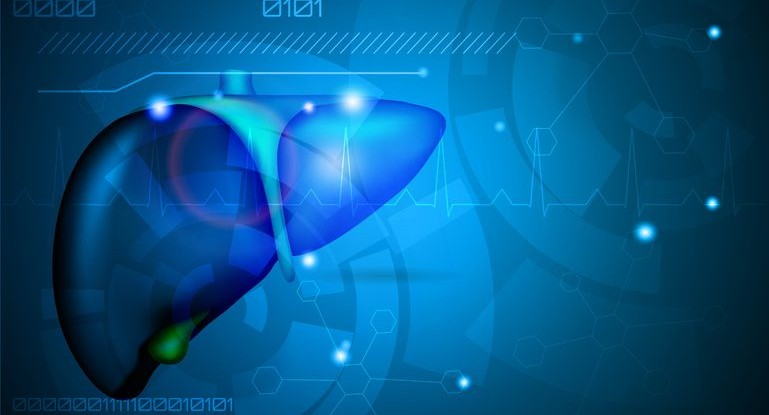
Primary biliary cholangitis (PBC) is a chronic type of liver disease that can gradually destroy bile ducts. These ducts deliver bile from the liver to the small intestines, to help your body digest fats and certain vitamins. When bile ducts are destroyed by PBC, bile stays in the liver and damages liver cells, which can cause cirrhosis (scarring of the liver) and lead to liver failure. PBC is a slow progressive disease that may have no symptoms for many years. Treating PBC to keep the liver functioning normally can allow for a normal life expectancy.
Obeticholic acid is used to treat PBC. This medicine is sometimes used together with another drug called ursodeoxycholic acid (UDCA).
Obeticholic acid was approved by the US Food and Drug Administration (FDA) on an “accelerated” basis. In clinical studies, patients with PBC responded to obeticholic acid. However, further studies are needed to determine if this medicine can improve survival or disease-related symptoms.
Obeticholic acid may also be used for purposes not listed in this medication guide.
What is the most important information I should know about obeticholic acid?
Follow all directions on your medicine label and package. Tell each of your healthcare providers about all your medical conditions, allergies, and all medicines you use.
What should I discuss with my healthcare provider before taking obeticholic acid?
You should not use obeticholic acid if you are allergic to it, or if you have complete blockage of your bile ducts.
To make sure obeticholic acid is safe for you, tell your doctor if you have:
- pre-existing liver disease.
It is not known whether this medicine will harm an unborn baby. Tell your doctor if you are pregnant or plan to become pregnant.
It is not known whether obeticholic acid passes into breast milk or if it could harm a nursing baby. Tell your doctor if you are breast-feeding a baby.
How should I take obeticholic acid?
Follow all directions on your prescription label. Your doctor may occasionally change your dose to make sure you get the best results. Do not use this medicine in larger or smaller amounts or for longer than recommended.
Obeticholic acid is usually taken once per day, with or without food.
To be sure this medicine is helping your condition, you may need frequent blood tests. You may not notice any change in your symptoms, but your blood work will help your doctor determine how best to treat you with obeticholic acid.
You may be given other medications to treat itching that may be caused by obeticholic acid.
If you stop taking obeticholic acid for any reason, you may need to use a lower dose when you start taking it again. Follow your doctor’s dosing instructions carefully.
Call your doctor if your symptoms do not improve, or if they get worse. The most common symptoms of PBC is intense itching, especially in your arms, legs, and back.
Store at room temperature away from moisture and heat.
What happens if I miss a dose?
Take the missed dose as soon as you remember. Skip the missed dose if it is almost time for your next scheduled dose. Do not take extra medicine to make up the missed dose.
What happens if I overdose?
Seek emergency medical attention or call the Poison Help line at 1-800-222-1222.
What should I avoid while taking obeticholic acid?
If you also take a bile acid resin (such as colesevelam, cholestyramine, or colestipol), avoid taking the bile acid resin within 4 hours before or 4 hours after you take obeticholic acid.